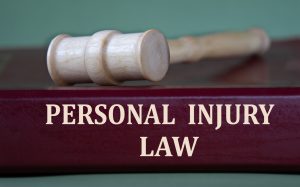If you've been injured in a car accident on the Garden State Parkway, slipped and fallen at a Jersey Shore boardwalk, or suffered a workplace injury in Newark, you're likely facing a multitude of challenges.
From managing your physical recovery to dealing with the tough legal system, one crucial aspect of building a strong personal injury case is documenting the progression of your injuries. This may seem like a difficult task, but it's essential to securing the compensation you deserve.
In this article, we'll explore why documenting the progression of injuries is crucial for personal injury cases in New Jersey and how a personal injury attorney can help you build a strong case.
The Importance of Comprehensive Documentation
Personal injury cases depend heavily on evidence to substantiate the extent of injuries and the associated damages. By carefully documenting the progression of your injuries, you create a detailed record that can be used to support your claim and provide a clear picture of the impact the incident has had on your life.
A recent 2023 study by the American Bar Association found that over 90% of personal injury attorneys consider thorough documentation to be essential for achieving a favourable outcome in car accident lawsuits.
This documentation serves as a powerful tool for your legal team, enabling them to effectively communicate the severity of your injuries and the challenges you've faced throughout the recovery process. Without this crucial evidence, it can be difficult to accurately assess the full scope of your losses and secure the compensation you deserve.
What to Document
When it comes to documenting the progression of your injuries, it's important to be thorough and consistent. Whether you're recovering from a workplace injury in Atlantic City or a car accident injury case in Cherry Hill, documenting your injuries is crucial for building a strong personal injury case in New Jersey.
While documenting the progression of your injuries may seem straightforward, there are technical and legal implications that can be easily ignored. This is where the expertise of experienced New Jersey personal injury lawyers, such as Rosengard Law Group, can be invaluable.
They can guide you through the enormous legal documentation process, ensuring that you capture all relevant information and present it clearly and compellingly. To serve you better you can also call them at 856-284-6446 and take their advice on securing documents.
Below are some important sources of documents that can help your case we have touched them one by one read them carefully and prepare your case well
1. Medical Records
Obtain copies of all medical records related to your injuries, including diagnostic tests, treatment plans, and physician notes. These records provide a comprehensive overview of your medical condition and the steps taken to address your injuries.
2. Symptom Logs
Maintain a detailed log of your symptoms, including their severity, frequency, and duration. This can help track any changes or new developments in your condition over time.
3. Photographic Evidence
Regularly take photographs or videos of your injuries, highlighting any visible changes, such as bruising, swelling, or surgical sites. Visual documentation can be incredibly powerful in illustrating the extent of your injuries.
4. Impact on Daily Life
Document how your injuries have affected your ability to perform daily activities, such as work, household chores, or recreational pursuits. This information can help demonstrate the personal and financial toll your injuries have taken.
5. Treatments and Therapies
Keep records of all treatments, therapies, and medications you've undergone or taken, including their effectiveness and any side effects or setbacks experienced.
The Benefits of Thorough Documentation
By thoroughly documenting the progression of your injuries, you not only strengthen your legal case but also safeguard your rights and interests. Here are some key benefits:
1. Accurate Damages Assessment
Comprehensive documentation provides a clear picture of the full extent of your injuries, allowing for a more accurate assessment of the damages you've suffered, including medical expenses, lost wages, and pain and suffering.
2. Improved Negotiation Leverage
Well-documented injuries can give your legal team greater leverage when negotiating with insurance companies or opposing parties, as they have concrete evidence to support your claims.
3. Increased Credibility
Thorough documentation demonstrates the seriousness of your injuries and the efforts you've made to seek treatment and recover. This can lend credibility to your case and increase the likelihood of a favourable outcome.
4. Preparation for Potential Challenges
If your case goes to trial, having comprehensive documentation can help your legal team effectively respond to any challenges or assertions made by the opposing party regarding the nature or extent of your injuries.
FAQs
How long should I continue documenting the progression of my injuries?
It's recommended to continue documenting your injuries until you've reached maximum medical improvement (MMI) or until your legal case has been resolved. This ensures that you capture the full scope of your recovery journey.
What if I'm unable to document certain aspects of my injuries due to my condition?
In cases where you are physically or mentally unable to document certain aspects of your injuries, it's advisable to enlist the help of a trusted family member or caregiver to assist with the documentation process.
Can I rely solely on my medical records to document the progression of my injuries?
While medical records are an essential component of documenting your injuries, they alone may not provide a comprehensive picture. It's important to supplement medical records with additional documentation, such as symptom logs, photographic evidence, and records of your daily struggles.
Conclusion
Documenting the progression of your injuries is a necessary step in building a strong personal injury case in New Jersey.
By maintaining a detailed record of your medical condition, treatments, and the impact on your daily life, you create a powerful tool for your legal team to effectively advocate on your behalf.
With the guidance of experienced personal injury lawyers, you can handle the documentation process with confidence and increase your chances of securing the compensation you deserve.





















